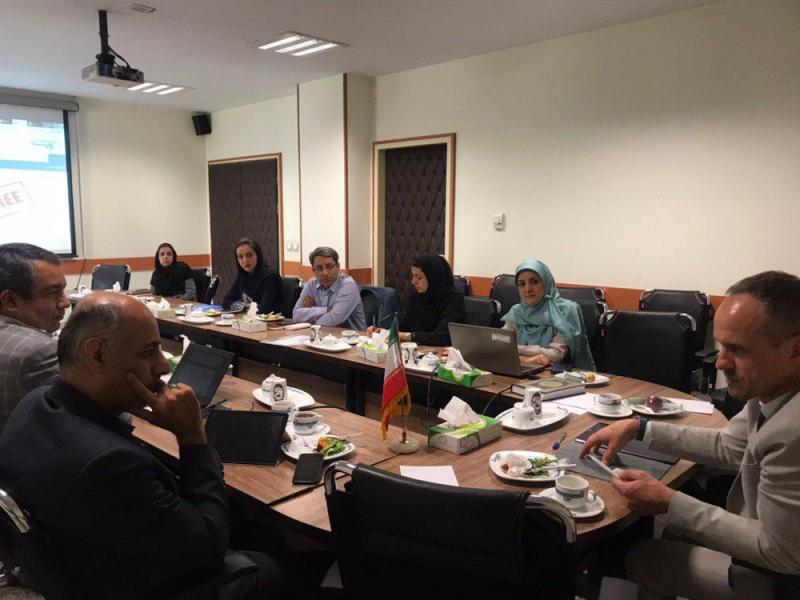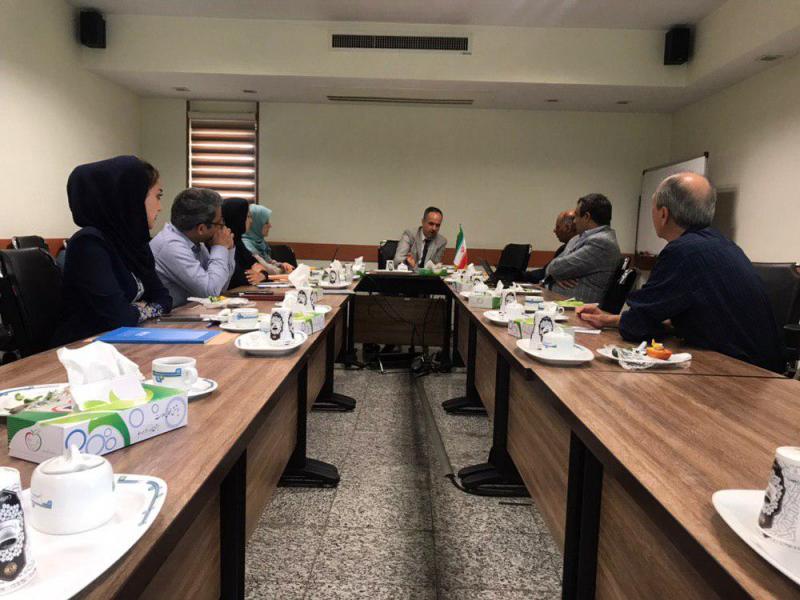
Tehran, 9 July 2019- There was an opportunity for Cochrane Iran to present their main activities, plans and successes in recent years in an amicable meeting with Dr. Holger Jens Schünemann, Director of Cochrane Canada during his trip to Tehran. This was arranged by World Health Organization Office in Tehran as his consultancy in order to review guideline development process in the Ministry of Health and Medical Education.
Arash Rshidian, Director of Information, Evidence and Research at Eastern Mediterranean Region World Health Organization, (WHO/EMRO), accompanied Dr. Schunemann and gave a brief history of EBM movement in Iran. “Evidence summaries may increase health policy-makers’ use of evidence from Cochrane reviews and Cochrane Iran have the potential of converting the translated abstracts in Persian to evidence summaries” said Dr Rashidian.
A brief history and activities of Cochrane Iran such as translation projects, training, network, funding and advertising process has been presented. “2300 Cochrane review abstracts, including Plain Language Summaries (PLS), have been translated in Persian by March 2019 and published in Cochrane.ir –the local website of Cochrane Iran. Therefore, the Persian after Spanish and French is the 3rd language in terms of translated Cochrane Review Abstracts and 4th language in terms of translated PLSs” said Bita Mesgarpour Deputy Director of Cochrane Iran.

Payam Kabiri explained some details about the platform of published Persian translated abstracts. He said: “The total view for Persian abstracts is 2,214,377 which mostly have been directed from Google by searching the medication name such as betahistine, pregabalin, gabapentin and aripiprazole.” He then continued: “We found that Iranian physician are not sufficiently skillful to understand a systematic review and use it for daily practice, therefore, we planned for 10 workshops of How to Read a Systematic review around different Iranian medical universities during the previous year and will hold it in 15 more medical universities during this year.”
Director of the McMaster GRADE Centre said “Iranian remarkable achievements in the short run are impressive”. Schünemann emphasized the importance of linkage between clinical guidelines program and systematic reviews. He said: “To be more efficient, Cochrane Iran as a moderator or broker can make network and interact with health ministry on guideline development. In other words, the national policy on guidelines should also follow the systematic reviews recommendations for quick updates.”

Ali-Akbar Haghdoost as Director of Cochrane Iran, said “Considering limited resources including manpower, funds and language barriers, we have done our best to encourage and support all contributors to meet our needs and priorities. In this matter, we have made an agreement with IRIMC (the Islamic Republic of Iran Medical Council) to focus on deploying the result of systematic reviews and guidelines.”
Accordingly, official representatives of Cochrane Iran and Canada shared their experience, challenge, gaps and barriers to implement clinical guidelines in practice. In collaboration with Cochrane Canada using and applying Grading of Recommendations Assessment, Development, and Evaluation (GRADE) into clinical guidelines and evidence summaries would be the next step for Cochrane Iran.
Tuesday, 9 July 2019
